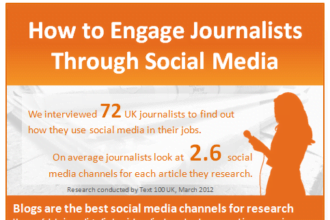Thanks to Larry Husten and the Cardiobrief blog for reprinting Harlan Krumholz’ New England Journal of Medicine article calling attention to a series of studies that show sponsors of a huge number of clinical trials, including those financed by the National Institutes of Health, are not divulging their results. Krumholz concludes:
Thanks to Larry Husten and the Cardiobrief blog for reprinting Harlan Krumholz’ New England Journal of Medicine article calling attention to a series of studies that show sponsors of a huge number of clinical trials, including those financed by the National Institutes of Health, are not divulging their results. Krumholz concludes:
The absence of the data renders meta-analyses, systematic reviews, and book chapters suspect. Conclusions are made on the basis of incomplete science. In short, publication bias and selective publication are impugning the validity of what we can learn from a PubMed search or even the most careful review of published studies.
The studies, which first appeared in the British Medical Journal, include:
Ross et al: Despite recent improvement in timely publication, fewer than half of trials funded by NIH are published in a peer reviewed biomedical journal indexed by Medline within 30 months of trial completion. Moreover, after a median of 51 months after trial completion, a third of trials remained unpublished.
Hart et al: The effect of including unpublished FDA trial outcome data varies by drug and outcome.
Ahmed et al: Publication, availability, and selection biases are a potential concern for meta-analyses of individual participant data, but many reviewers neglect to examine or discuss them. These issues warn against uncritically viewing any meta-analysis that uses individual participant data as the most reliable.
Prayle et al: Most trials subject to mandatory reporting did not report results within a year of completion.
Wieland et al: Based on the results for 2005, at least 3000 records describing randomized controlled trials but not indexed using RCT may have been entered into Medline between 2006 and 2011.
The studies led by Ross and Prayle suggest that NIH-funded researchers are violating a law passed several years ago requiring publication of their results in a database. Did NIH fail to follow through on enforcing this requirement? Some enterprising reporter should investigate the possibility that investigators financed by the nation’s premier medical science research agency are violating this requirement wholesale.
This would appear to be one more example of where disclosure requirements, if unaccompanied by meaningful penalties, fail as a tool for policing bad behavior. In our age of hyper-commercialization and scientific competition, is sunlight still the best disinfectant, as Supreme Court Justice Louis Brandeis wrote in the early 20th century? Sometimes bleach works better. As Tracy Weber and Charles Ornstein of ProPublica reported yesterday, drug industry payments to physician “thought leaders” are slowing, not just because of greater disclosure, but because leading academic medical centers are cracking down on violators of their stricter policies limiting those payments.
The government cannot demand disclosure by investigators in privately-sponsored clinical trials. But NIH and the Food and Drug Administration, which receives data as part of new drug applications, can and should. If government-funded investigators fail to publish all their results in a timely manner — one year after the conclusion of a clinical trial seems reasonable — they should be barred from receiving new grants for at least three years. And companies that seek government approval for new drugs or expanded indications for old drugs should no longer be given the shield of “confidential business information” for any trial at the Phase II or III level, whether the drug or device is approved or not. Business matters, but public health and the accuracy of the science that informs it are more important.








